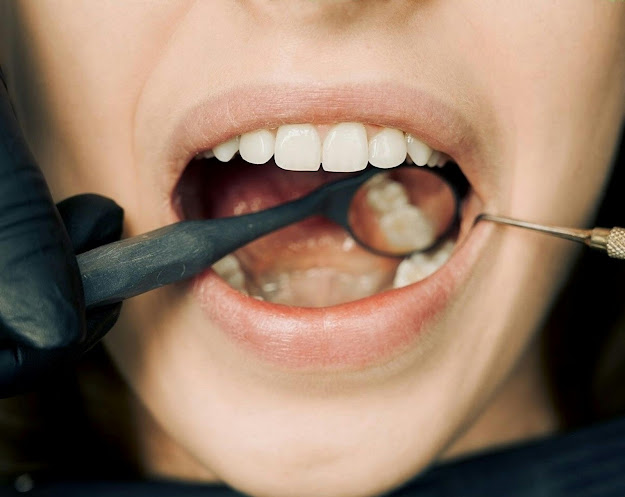How Painful is an Infected Tooth Extraction Compared to a Regular One?
Understanding Tooth Infections
A tooth infection, also termed abscessed tooth, occurs when bacteria
penetrate the innermost layers of the tooth, causing inflammation and pus accumulation.
This condition can be excruciating and often requires immediate treatment,
typically an infected tooth extraction. While any tooth
extraction procedure can cause some discomfort, an infected tooth extraction
can be more painful than a regular extraction due to the pre-existing infection
and inflammation.
Factors Contributing to Increased Pain
Several factors can contribute to a more painful experience during an
infected tooth extraction:
1. Swelling and Inflammation
An infected tooth is typically accompanied by significant swelling
and inflammation in the encompassing gum tissue, jaw, and even
the face. This inflammation can increase the sensitivity of the area,
making the extraction process more uncomfortable.
2. Pus Accumulation
The accumulation of pus and infectious material around the tooth root can
complicate the extraction procedure, potentially causing more trauma to the
surrounding tissues and increasing discomfort.
3. Bone Involvement
In extreme cases, the infection can spread further to the underlying
jawbone, necessitating more extensive removal of bone tissue, which can be
more painful and require a longer recovery period.
4. Nerves and Blood Vessels
Infected teeth often have inflamed and swollen nerves and blood vessels,
which can be more sensitive to pressure and manipulation
during the extraction process, leading to increased pain.
Preparing for an Infected Tooth Extraction
To minimize the discomfort associated with an infected tooth
extraction, it's essential to follow your dentist or oral surgeon's
instructions carefully. Here are some tips to help prepare:
1. Antibiotics and Pain Medication
Your dental professional may suggest tasking antibiotics to help control the
infection and reduce inflammation before the procedure. Additionally, they may
recommend taking pain medication before the appointment to help manage
discomfort.
2. Cold Therapy
Employing an ice pack or cold compress to the affected area before the
extraction can help numb the area and reduce swelling, potentially minimizing
pain during the procedure.
3. Stress Management
Dental anxiety can exacerbate the perception of pain, so practicing
relaxation techniques or discussing sedation options with your dentist can help
manage stress levels.
Dealing with an Infected Tooth That Won't Numb
In certain cases, the infection and inflammation can be so severe that
the affected area may not respond to local anesthesia, making it difficult to
numb the tooth and surrounding tissues adequately. This scenario,
known as an infected tooth won't numb, can be
particularly challenging and may require additional measures:
1. Antibiotics and Anti-Inflammatory Medication
Your dentist may prescribe a course of antibiotics and anti-inflammatory
medication to help reduce the infection and swelling, potentially improving the
effectiveness of the local anesthetic.
2. Alternative Anesthesia Techniques
Your dentist in
Ellicott City may try alternative anesthesia techniques, such as
nerve blocks or additional injections, to ensure adequate numbing of the
affected area.
3. Surgical Extraction
In severe cases where numbing remains ineffective, your dentist may
recommend a surgical extraction under general anesthesia or conscious sedation
to secure a comfortable and pain-free procedure.
Post-Extraction Care and Pain Management
After the infected tooth extraction, proper care and pain management are
mandatory for a smooth recovery:
1. Medications
Follow your dentist's instructions regarding pain medication, antibiotics,
and any other prescribed medications to manage pain, prevent
infection, and promote healing.
2. Cold Therapy
Applying some ice packs or cold compresses to the concerned area
can help reduce swelling and numb the area, providing relief
from post-extraction pain.
3. Rest and Elevation
Getting adequate amount of rest and keeping your head elevated can
help minimize swelling and discomfort. Avoid strenuous activities that
may lead to an increase blood flow and prolong the recovery process.
4. Soft Diet
Stick to a soft, nutritious diet that doesn't require excessive chewing or
put pressure on the extraction site. Avoid eating hard, crunchy, or spicy foods
that may cause further irritation.
5. Saltwater Rinses
Gently rinsing with a little warm salt water can help promote
healing and flush out any food particles or debris that cause
irritation to the extraction site.
Finding a Trusted Dentist Near You
If you're in need of an infected tooth extraction or any
other dental procedure, consider Julian Center for Comprehensive Dentistry in
Ellicott City, MD. This reputable dental practice offers a wide range
of services, including tooth extractions and emergency dental care, performed
by experienced and compassionate dental professionals.
Don't let an infected tooth continue to cause you pain and discomfort. Seek
quick treatment from a qualified dental professional to get rid
of your symptoms and prevent further complications. If you're in the
Ellicott City area and require the services of a skilled dentist
21042, contact Julian Center for Comprehensive Dentistry today
to book an appointment and get the relief you deserve. Their expertise in
handling challenging cases like an infected tooth won't ensure a comfortable
and successful extraction procedure.



Comments
Post a Comment